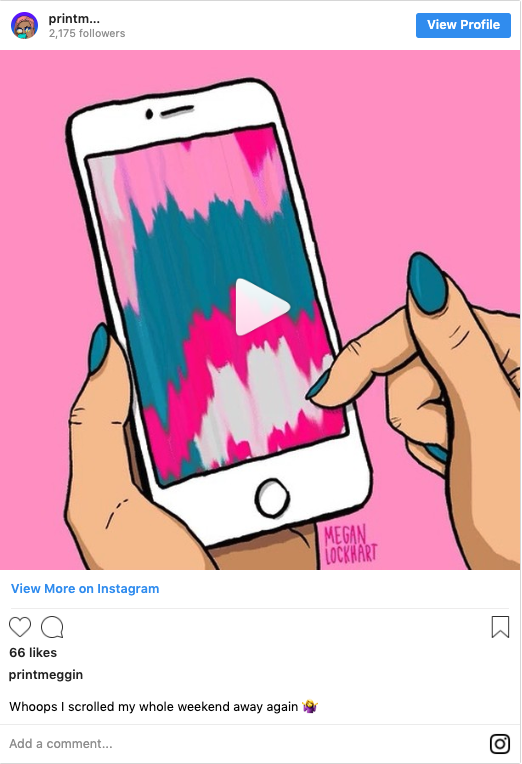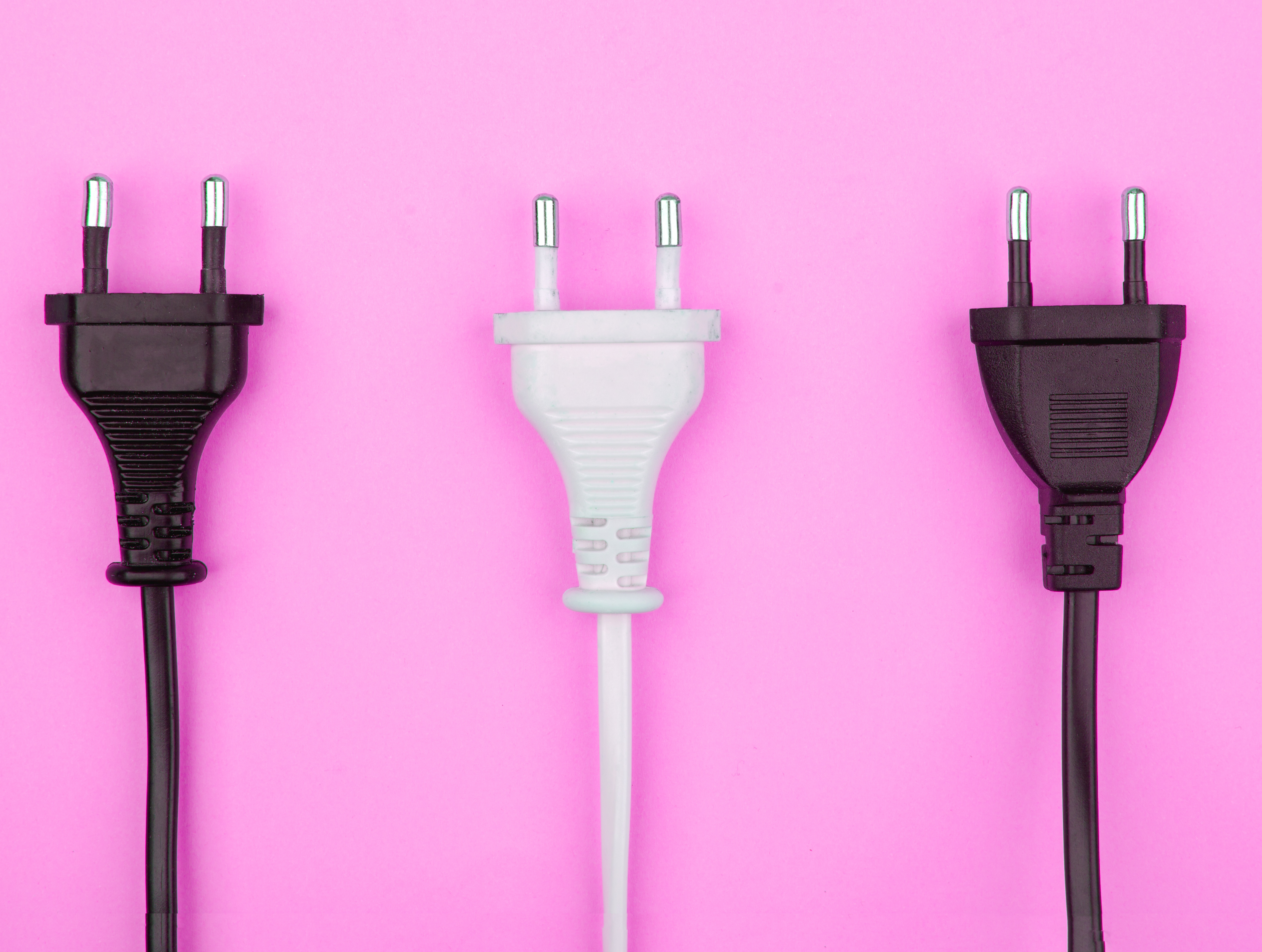Welcome to our special section, Thrive on Campus, devoted to covering the urgent issue of mental health among college and university students from all angles. If you are a college student, we invite you to apply to be an Editor-at-Large, or to simply contribute (please tag your pieces ThriveOnCampus). We welcome faculty, clinicians, and graduates to contribute as well. Read more here.
In a world with relentless push notifications, text updates and breaking news alerts, releasing your self from the claws of social media is nearly impossible. Personally I’d love to break free from my social media sites, but it wouldn’t be easy as a 20-something without social media in 2019.
Social sites are a fundamental part of everyday American life. Everyone is Snapchatting, direct messaging, making plans and posting their achievements online constantly; it’s how we stay connected.

But what does “staying connected” mean in the 21st century? Is connected watching someone’s Snapchat story and to see how his or her day went? Does being connected equate to “liking” a Facebook status or a picture on Instagram? If so, are we really connected? Do you feel closer to the person you see on your phone screen?
Recently, the reality of my posts is disingenuous. Just as I don’t really know what’s going on in my friends lives based on social media, and they don’t really know what’s going on in mine. I’ve only tricked myself and everyone else into believing a facade.
The idea that we’re only as connected as our social sites dictate we are is insane.
My obsession with fitting into the status quo watching, liking and posting on social media led to direct alterations in my social and behavioral patterns.
Let’s take brunch, for example. It’s an easy way to catch up with friends, right?
Wrong.
What was once a two-hour catch-up and gossip session has snowballed into a “who’s aesthetic will be better on social media” war.
Brunch is where the 20 something’s pick the trendiest place to eat so they can post their “going green smoothie,” and “skinny acai bowl,” with a side of “I JUST FREAKING WANT ATTENTION,” on ALL platforms. Then they barely eat the food on their plate.
All the while the conversation is nonexistent because their faces are glued to their phones until food hits the table. Then they stop scrolling, whip out their cameras and lightly chatter about whose food looks better.
The girls coo and fawn over the runny fried egg yolk and the color of the avocado on their toast. They shuffle forks and coffee mugs right and left to fashion the perfect balance for their photo – trendy and delicious.

They turn flashes on and then off, and on again, and just when you think it is over, it’s not. They scroll through eternal time to find the perfect sticker so everyone knows, “On Sunday’s, we brunch.”
Not only do they let their “phones eat first,” but they’re also disengaging from social interaction. After the food pictures are posted and excitement of the moment passes, the scrolling continues. We mute reality and fall back into technology.
I was a perpetrator of this clandestine “catch up” brunch. I was queen of disengaging until recently when I found myself in a particular situation, and ever since I’ve vowed to stay present – no phones at the table.
It started with brunch. I snapped a picture of my food, posted it to my story and continued to eyeball Instagram. Then my friend broke the technological silence. She started to speak, “So I have a crazy story to tell you! Yesterday I went to the mall…”
And as if a 21st century robot possessed my brain I blurted, “ – Yeah I know and you ordered a ‘tall’ coffee and they accidently gave you a ‘grande.’ No up charge.”
And then it got worse. I offhandedly ended with, “I already saw it on your story.”
I unconsciously curtailed all face-to-face interaction so I could continue scrolling through my social media. Even though I had planned this brunch to spend time with my friend.
And in one sentence not only did I belittle her exciting experience, I also completely disconnected from her.
When I caught myself in the act, I was appalled by my blatant insincerity. I felt ashamed yet my friend was unfazed. She simply smiled and nodded; almost relieved she did not have to tell the entire story.
To any social adult this would appear a strange reaction. Yet it was what I expected, no it’s what I wanted from her. I didn’t want to hear a 10-minute story about coffee cup sizes I felt I had already heard based off her social media. And clearly I preferred the abridged Snapchat version.
Young adults are less likely to listen to long-winded stories full of color and detail anymore because according to an article in the Boston Globe, “As the internet speed increases, people will be even less willing to wait for that puppy video to load.” We like 140 character or less, the condense version of everything.
Spark notes? Love ‘em. One minute “Tasty” video? Perfect. Four hundred-word article? I’ll read it twice. We value brevity and rapidity because we’ve been trained to take in the world in 10 seconds or fewer.
My social media molded me into an apathetic monster and everyone around me was conforming when they should have been rebelling. Which brings me to this – we need to disconnect in order to reconnect.

For me, the emotions released when I’m physically talking to a friend outweigh those I feel when I simply respond to a Snapchat or “like” a status.
If you strictly survive off social media connection for interpersonal relationships, chances are you feel more lonely and depressed than people who regularly go out with their friends, according to an article published by Standford Medicine.
We need to set healthy boundaries with our social sites and allow ourselves to be present. We need to simultaneously be aware of how precious our personal relationships are and how easily social media can ruin and distort them.
“People who feel more connected to others have lower levels of anxiety and depression. Studies show they also have higher self-esteem, greater empathy for others, are more trusting and cooperative and, as a consequence, others are more open to trusting and cooperating with them,”
– According to a New York Times article, Dr. Emma Seppala from The Center for Compassion and Altruism Research and Education said
Now I challenge myself to leave my phone in the car during brunch and avoid Instagram stories, Facebook statuses or Snapchats. Instead when I think of someone I haven’t spoken to in a while, I call him or her.
Initially my phone calls were received poorly. One friend thought I was calling to share bad news. Another friend simply “didn’t have time to talk on the phone” and asked if I could text her “what was up” in stead.
But when I explained one by one I wanted phone conversations or in person coffee dates, not texts or “Snaps,” my friends began to comply. And for the first time in a long time I felt connected.
We need to disconnect. We need to avert our eyes from constant life updates and news media reels. We need to power down and realize the importance of personal connections and conversations. We cannot keep shutting our friends down because we think we know everything that happened in their day based off a 10-second video or 3-second picture.
I challenge you to power down next time you go to a “friend brunch” or have a family dinner – try leaving your phone behind. I believe it will make the world a more connected place.
Subscribe here for all the latest news on how you can keep Thriving.
More on Mental Health on Campus:
If You’re a Student Who’s Struggling With Mental Health, These 7 Tips Will Help
Student Mental Health: Behind the Scenes at Stanford
What Campus Mental Health Centers Are Doing to Keep Up With Student Need


